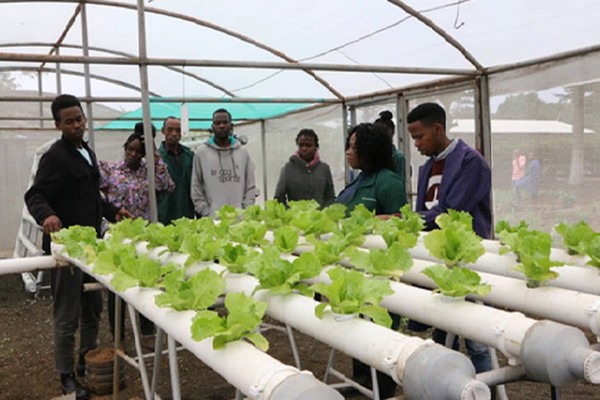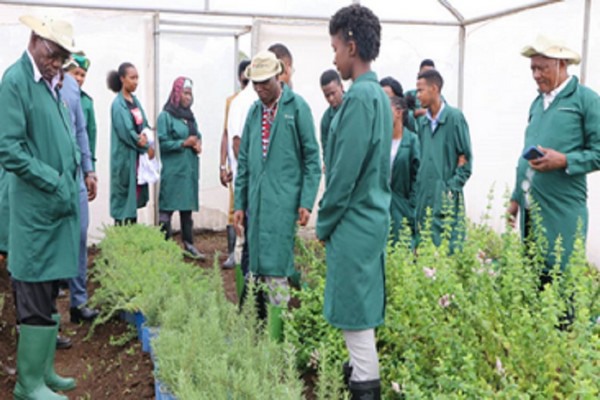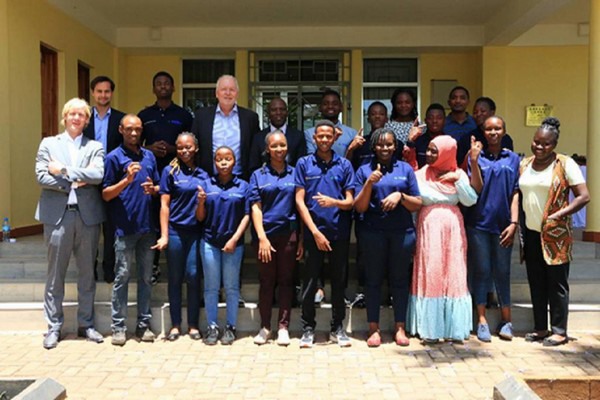In Tanzania, the youth accounts for the majority share of the population. Each year more than 1 million young people graduate from tertiary education. However, not all students will be enrolled in formal jobs, and a good number of graduates are left unemployed. On the other hand, the agriculture sector is the key driver of the Tanzania economy, a major source of employment for more than 70% of the population, and forms a significant contribution to the national income.

Hydroponic system for leafy vegetables at the VIABLE farm. Source: Agroberichtenbuitenland.nl
Despite the great potential of the sector to contribute to self-employment, most youth shies away from agriculture due to various reasons, including the perception that agriculture is extremely painstaking, not a lucrative activity, and should only be considered when all options are exhausted. Access to technology, innovations, skills, and knowledge has the potential to make agriculture fun and appealing to youth. Also, collaborative efforts from stakeholders to assist youth in setting up good business cases through practical skills, mentorships, peer-peer learning, and access to markets will be a step further.
Research Centre pioneering youth horticultural transformation
To tackle youth challenges in Tanzania, the World Vegetable Center established a special program for youth focusing on horticulture with the name of Nipo Tayari Kwa Ajira literally means “ready for employment.”

Spices and herbs orchard at the VIABLE farm
The program was designed to stimulate entrepreneurship among youth and enhance their employability with a special focus on women. Young entrepreneurs within the program receive support through business and social skills development, mentoring, and local coworking spaces, incubators, and innovation labs. The program also targets to link young entrepreneurs with interested investors to unlock access to finance.
The program later matured into a viable business case and changed its name to VIABLE as an abbreviation for Tanzania Vijana Agribusiness Enterprise. VIABLE was officially registered in April 2022, pulling 19 youth graduates from different professions driven by a passion for agriculture.

Embassy team in a group photo with VIABLE youth
About VIABLE
A like-minded youth initiative that aspires to bring talent, energy, and fun into the agriculture sector. Since horticulture has a short production circle with lots of opportunity within the chain that requires minimal investment, this group decided to join hands and use the skills and knowledge acquired at school to form a business. The group is currently focused on horticultural products (fruits, vegetables, herbs, and spices) from production, value addition, and marketing.
The group aspires to grow and become a leading international company that supplies safe and high-quality products and advisory services.
Visit of the ambassador
In October, VIABLE had the privilege to be visited by the Netherlands ambassador to learn about the activities, challenges, and impact these youth are making in the sector. During this visit, a productive discussion was held, revealing the ambition, vision, and challenges of this youth group.
Source: www.agroberichtenbuitenland.nl
